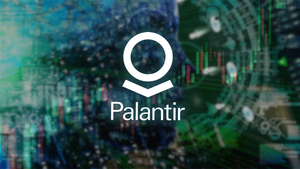
San Francisco, CA – September 30, 2025 – Meta Platforms Inc. (NASDAQ: META) has announced the acquisition of Rivos, a burgeoning chip startup, in a bold move set to significantly accelerate its in-house artificial intelligence (AI) chip development. This strategic acquisition, publicly disclosed today, underscores Meta's escalating commitment to designing custom silicon, aiming to reduce its reliance on external suppliers and gain greater control over its foundational AI infrastructure. The deal is poised to send ripple effects across the semiconductor market, signaling a long-term shift that could challenge the dominance of established players like Nvidia (NASDAQ: NVDA).
The acquisition is a clear statement of intent from Meta, as it seeks to tailor hardware specifically for its demanding AI workloads, ranging from sophisticated recommendation systems to cutting-edge generative AI models. By integrating Rivos's expertise in high-performance, energy-efficient processors based on the open-source RISC-V instruction set architecture, Meta anticipates substantial long-term cost reductions and a significant boost in performance optimization for its vast data center operations. This strategic independence could be a significant competitive advantage in the race for AI supremacy.
A Deep Dive into Meta's Rivos Acquisition
The acquisition of Rivos by Meta Platforms Inc. culminates a growing trend among hyperscale tech giants to bring critical hardware development in-house. While specific financial terms of the deal were not immediately disclosed, the strategic value is immense. Rivos has been a quiet but influential force in the semiconductor space, specializing in the development of custom silicon, particularly GPUs and System-on-Chip (SoC) solutions optimized for high-performance computing and AI. Their focus on the open-source RISC-V architecture aligns perfectly with Meta's long-term vision for flexible and efficient hardware.
This move follows a period where Meta CEO Mark Zuckerberg has openly expressed a desire to accelerate internal chip development, recognizing the strategic importance of custom silicon for AI advancement. The timeline leading up to this acquisition has seen Meta steadily increasing its investment in AI research and infrastructure, with a clear understanding that proprietary hardware can provide a significant competitive edge. Rivos, with its team of experienced chip designers and engineers, many of whom have backgrounds at industry giants, represents a significant talent infusion for Meta's existing hardware teams. The initial market reaction, while still developing, suggests that investors are viewing this as a forward-looking strategic play by Meta, emphasizing long-term efficiency and innovation over short-term procurement costs. The broader semiconductor industry is closely watching, recognizing this as another significant step in the ongoing shift towards custom silicon by major tech consumers.
Shifting Sands: Winners and Losers in the Wake of the Deal
The acquisition of Rivos by Meta Platforms Inc. is set to create distinct winners and losers across the technology and semiconductor landscapes. Foremost among the potential beneficiaries is Meta Platforms Inc. (NASDAQ: META) itself. By bringing chip design in-house, Meta gains unparalleled control over its AI hardware stack, allowing for bespoke optimizations that can significantly improve the efficiency and performance of its AI models. This translates to potential long-term cost savings, reduced reliance on external suppliers, and a faster iteration cycle for its AI innovations. This strategic independence could be a significant competitive advantage in the race for AI supremacy.
Conversely, Nvidia (NASDAQ: NVDA) stands out as a company that could face long-term headwinds. While Meta will undoubtedly continue to be a major customer for Nvidia's GPUs in the short to medium term, the Rivos acquisition signals Meta's clear intent to reduce this dependence over time. As Meta scales its custom chip efforts, the demand for Nvidia's high-end AI accelerators from one of its largest clients could gradually diminish. This trend, if replicated by other hyperscalers, could pressure Nvidia to further diversify its offerings or intensify its own custom silicon initiatives. Other established chip designers and IP providers might also face increased competition from Meta's internal efforts, though some specialized design tool and IP companies could find new opportunities in supporting the growing custom chip market. On the manufacturing front, Taiwan Semiconductor Manufacturing Company (TSMC) (NYSE: TSM) could potentially emerge as a significant winner, as Meta will likely rely on advanced foundries like TSMC to fabricate its custom Rivos-designed chips, further solidifying TSMC's position as the leading contract chip manufacturer.
Broader Implications and Industry-Wide Ripples
Meta's acquisition of Rivos is not an isolated event but rather a significant marker in a broader industry trend towards vertical integration and custom silicon development among major technology companies. This move underscores the critical importance of specialized hardware in unlocking the full potential of advanced AI. Companies like Google (NASDAQ: GOOGL) and Amazon (NASDAQ: AMZN) have already made substantial inroads into developing their own AI-specific chips (TPUs and Inferentia/Trainium, respectively), recognizing that off-the-shelf solutions, while powerful, cannot always meet the unique demands and scale of their proprietary AI workloads. Meta's entry into this arena with Rivos further solidifies this trend, indicating that custom silicon is becoming a strategic imperative rather than a niche advantage.
The ripple effects of this acquisition are likely to be far-reaching. Competitors in the social media and AI spaces will undoubtedly take note, potentially accelerating their own efforts to develop custom hardware or forge deeper partnerships with specialized chip designers. This could intensify the "chip race" among tech giants, fostering innovation but also potentially fragmenting the market for AI hardware. From a regulatory standpoint, while this specific acquisition may not immediately trigger significant antitrust concerns, the broader trend of tech giants consolidating control over their entire technology stack – from software to hardware – could draw increased scrutiny from regulators concerned about market dominance and fair competition in the long run. Historically, companies like Apple (NASDAQ: AAPL) have successfully transitioned to in-house chip design (e.g., Apple Silicon for Macs), demonstrating the immense strategic benefits, including performance gains and cost efficiencies, that Meta is now aiming to replicate for its AI infrastructure.
The Road Ahead: What Comes Next for Meta and the Market
The immediate aftermath of the Rivos acquisition will see Meta Platforms Inc. (NASDAQ: META) focused on integrating Rivos's talent and technology into its existing hardware and AI divisions. In the short term, this means accelerating the development and deployment of Meta's custom AI chips, likely targeting specific workloads within its vast data centers. We can expect to see Meta begin to showcase the performance and efficiency gains from these new chips in its future AI product announcements, potentially leading to more sophisticated and personalized user experiences across its platforms. Long-term possibilities include a significant reduction in capital expenditure related to third-party AI hardware procurement, freeing up resources for further AI research and development.
Strategically, Meta will need to carefully manage its transition away from a heavy reliance on external GPU providers. This involves a delicate balancing act of continued collaboration with companies like Nvidia (NASDAQ: NVDA) while steadily ramping up internal production. Market opportunities may emerge for specialized semiconductor equipment providers and IP firms that can support Meta's burgeoning chip design and manufacturing efforts. Challenges will include the inherent complexities of chip design and fabrication, supply chain management, and retaining top engineering talent in a highly competitive field. Potential scenarios range from Meta achieving full silicon independence for key AI workloads, thereby redefining its cost structure and innovation pace, to a more gradual integration that still leaves room for strategic partnerships. Investors should watch for Meta's capital expenditure reports and any announcements regarding the deployment and performance benchmarks of its internally developed AI chips.
A New Era of AI Hardware: Meta's Bold Leap
Meta Platforms Inc.'s acquisition of Rivos marks a pivotal moment in the company's strategic evolution and signals a significant shift in the broader technology landscape. The key takeaway is Meta's unwavering commitment to achieving greater control and efficiency over its AI infrastructure through custom silicon development. This move is not merely about cost savings; it's about unlocking new frontiers in AI innovation by tailoring hardware precisely to the demanding and unique requirements of Meta's expansive AI workloads. The immediate implications point to an accelerated timeline for Meta's in-house chip initiatives, setting the stage for a future where its AI capabilities are powered by bespoke, optimized hardware.
Moving forward, the market will undoubtedly assess the lasting impact of this acquisition on established semiconductor giants like Nvidia (NASDAQ: NVDA), who face the prospect of a major customer gradually reducing its reliance. This trend of vertical integration among hyperscalers is poised to intensify, fostering a more competitive and diversified AI hardware ecosystem. For investors, the significance lies in Meta's long-term vision for sustainable AI growth and operational efficiency. The coming months will be crucial for observing how Meta integrates Rivos's expertise, the pace at which it rolls out its custom chips, and the tangible benefits these chips deliver in terms of performance and cost. This acquisition underscores a fundamental truth in the modern tech economy: control over the underlying hardware is increasingly synonymous with control over future innovation and market leadership.
This content is intended for informational purposes only and is not financial advice.





